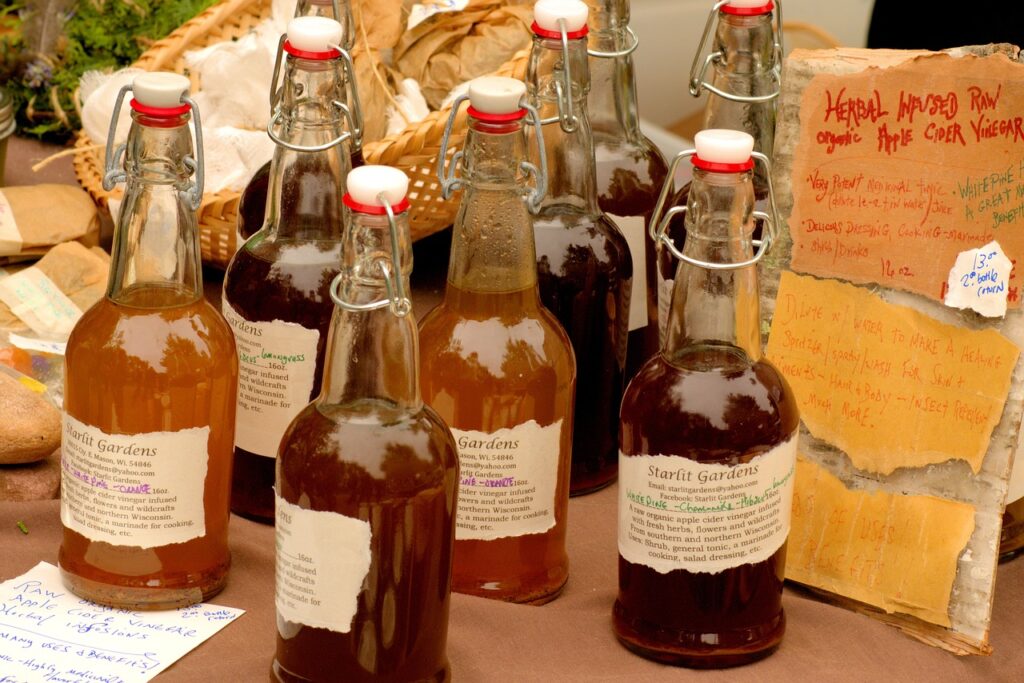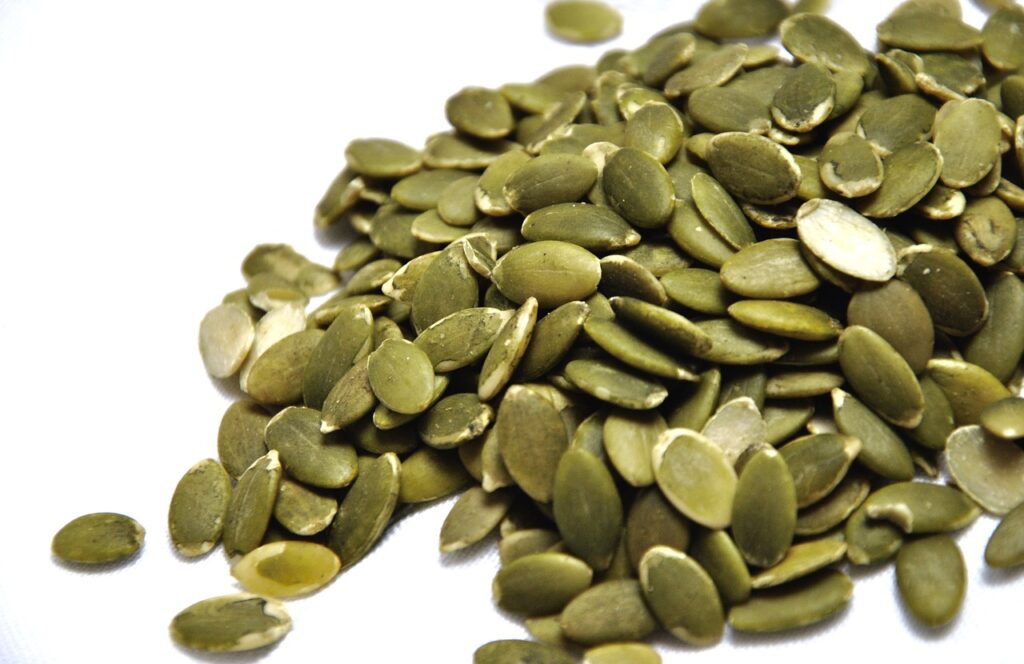Firstly, let’s understand about PCOS. What it is and how it occurs in females of reproductive age?
What is PCOS?
PCOS stands for Polycystic Ovarian Syndrome. It is a condition in which the ovaries produce an abnormal amount of androgens, a male sex hormones that are usually present in women only in small amounts. P in PCOS stands for polycystic which means that are formation of cysts in ovaries. But not all the women with PCOS develop cysts.
These cysts develop when a woman doesn’t make enough hormones needed to ovulate. So, when ovulation doesn’t happen, the ovaries can develop many small cysts. And these small cysts make excess male hormones called androgens.
Interesting fact: PCOS was first reported by Stein and Leventhal in 1935. However, even today there is a lack of awareness regarding the condition in India and often remains undetected for years.
Why does this PCOS occurs in females of reproductive age?
- Genetics: It is well known that genes can trigger a hormonal cascade. It may be possible that you may inherit the risk for PCOS. In a study conducted at the University of Alabama at Birmingham, the researchers found that 24% of women with PCOS had a mother with PCOS and 32% of the women had a sister with the condition.
However, there is no such single PCOS gene but a wide variety of genes and mechanisms seem to be at work, which may explain why PCOS has a wide range of symptoms and develops at different ages for women.
- Insulin resistance leads to secretion of excess male hormones: Most women with PCOS are expect to gain excess weight. This weight gain status contribute to insulin resistance. It means that your body is partially unable to send enough glucose to the cells for energy throughout your body. And when it happens, the pancreas produces more insulin to help keep glucose levels even. This production of extra insulin may have negative effects such as shutting down your ovaries and leading to higher than normal levels of male hormones, called androgens, including testosterone.
These higher levels of androgens are most likely to interfere with or even halt normal ovulation. And this interference alters the secretion of luteinizing hormone and gonadotropin-releasing hormone. Both of these hormones are involved in the development and release of an egg at the midpoint of a woman’s menstrual cycle.
What are the negative effects of hormonal imbalance in females?
The hormonal imbalances due to PCOS can put women at higher risk for a wide range of negative effects such as irregular menstrual cysts and infertility.
- Irregular menstrual cycles: Women with PCOS usually have menstrual cycles with infrequent periods (often more than 35 days apart) or no periods at all (amenorrhea). Your periods may be light because you’re not ovulating or extremely heavy because the lining of your uterus, called the endometrium, continues to thicken when the monthly cycle doesn’t happen. Since this lining is shed during a menstrual period, there is more to shed when you do menstruate. Women with PCOS typically have fewer than six to eight menstrual periods in a year (the norm is about 10 to 17 periods per year.)
- Infertility: With PCOS, hormonal imbalances interfere with normal ovulation. When your ovaries do not release an egg, you can’t conceive. Polycystic ovary syndrome is the leading cause of infertility in women.
Why PCOS is common in India?
One in every 10 women in India has PCOS, a common endocrinal system disorder among women of reproductive age, according to a study by PCOS Society. And out of every 10 women diagnosed with PCOS, six are teenage girls.
PCOS was discovered in 1935. However, even today there is a general lack of awareness regarding the condition in India and it often remains undetected for years. This health condition is affects about 10 million women globally.
The department of endocrinology and metabolism of AIIMS conducted a study in female of reproductive age which shows that about 20-25% of Indian women of childbearing age are suffering from PCOS. While 60% of women with PCOS are obese, 35-50% have a fatty liver. About 70% have insulin resistance, 60-70% have high level of androgen and 40-60% have glucose intolerance.
The incidence of PCOS among women and teenage girls has risen to such an extent that the Indian Council of Medical Research (ICMR) has taken up a nationwide survey. The reason it is dangerous is that if this condition is left unchecked or undiagnosed, it can lead to infertility among other long-term health concerns.
(Source: https://www.dailyo.in/variety/polycystic-ovary-syndrome-womens-health/story/1/16785.html)
The reason that PCOS is increasing in Indian females is because of their poor dietary habits and sedentary lifestyle.
Poor dietary habits and sedentary lifestyle:
Nowadays, everybody are too busy in their work life to take proper care of them. These hurries and worries have made people forget about the importance of proper eating habits, healthy lifestyle and proper emotional balance. The imbalance of all these things leads to lifestyle disorders and PCOS is one of them.
A sedentary lifestyle is the most common cause of this disease and that’s why PCOS is more common in the urban population than the rural one. As in cities, people have a more lack of any physical activity than the people living in villages. In villages, people are more active and eat light and healthy food, at least lighter than the urban population. Bad eating habits and unhealthy lifestyle are the main causes of every second disease.
Similarly, PCOS is also a lifestyle disorder developed from unhealthy eating and living. It should be treated properly as if remained for the long term in the body can cause many complications like infertility, hypertension, diabetes, and depression.
How can you treat your PCOS naturally?
There are various ways to manage your PCOS at home. Well, the secret lies in your kitchen. You can find the cure of PCOS in your kitchen. If you still haven’t understood what I am talking about and let me explain it to you!
To to keep it under control, women often make lifestyle changes either in their diets, adding exercise to their routine, or taking medications prescribed by their doctor. But what if I tell you that there are home remedies to keep a tab on the condition?
Well, we here at Fitpiq have got the list of tried-and-tested natural home remedies which will keep your PCOS under control. Here are few home remedies for PCOS that can help manage the symptoms and help in the treatment.
1. Cinnamon:
Cinnamon is an easily available spice in Indian kitchen. It contains cinnamaldehyde, which reduces insulin resistance. And plays a key role in regulating your periods. It also increases the production of the hormone progesterone which helps to balance the hormones and reduces the amount of testosterone in the body.

How to take it? Well, you can add one teaspoon of cinnamon powder to coconut water, porridge, soups, curries or salads. Also, you can even mix one teaspoon of the powder in water and drink it.
2. Apple Cider Vinegar:
Apple cider vinegar have an anti-glycemic effect which helps to regulate insulin levels in the body and thus, aids in the management of PCOS. It is also used as a home remedy for a wide range of health problems right from acne and hair fall to obesity.

How to take it? You can mix one teaspoon of apple cider vinegar to a glass of warm water and drink it on an empty stomach every day for effective results.
3. Green tea:
We all know that green tea is brimming with potent antioxidants such as catechins which help in relieving the symptoms of PCOS by acting on the hormones. Moreover, it is also known to aid in weight loss as people with PCOS suffer from weight gain.

How to take it? If you are using green tea powder then mix a teaspoon of green tea powder to a glass of water. Let it boil for 5 minutes and then remove from flame and strain in a cup. Also, you can dip a green tea bag in a cup of boiling water.
4. Jeera seeds:
Jeera seeds is one of the popular Indian spice. It contains antioxidants and certain chemicals which manages blood glucose levels in the body. Moreover, its powerful antioxidant also help in flushing out harmful toxins from the body.

How to take it? Well, you can add a teaspoon of jeera powder/seeds to a glass of water and boil it for 2-3 minutes. Now, let it cool and strain in a glass and drink it lukewarm. You can take it empty stomach in the morning.
5. Licorice:
Licorice is also known as mulethi in Hindi. It is a medical herb which acts as a potent anti-adrenergic compound which helps in maintaining the levels of male hormones. It reduces inflammation, insulin resistance, and stress. Also, aids in liver detoxification.

How to take it? You can take mulethi in tea form. Just add 1 small peice of dry mulethi root or 1 teaspoon of mulethi powder to water and boil it for 5-8 minutes and strain and drink.
6. Shatavari:
This is a ayurvedic herb. It is loaded with nutrients such as bioflavonoids, zinc, and calcium which are good for the overall women’s health. It is known to regulate the menstrual cycle and energize female reproductive cycle, which is impaired in women with the condition.

How to take it? You can add 1/2 teaspoon of Shatavari powder to a glass of milk/water, mix it well and drink it. It is easily available on online platforms so no need to worry about its availability.
7. Pumpkin seeds:
Pumpkin seeds are loaded with nutrients. These seeds contain healthy fats which not only help manage excess cholesterol levels in the body but also regulate insulin levels. It also contains a compound known as beta-sitosterol which helps remove excess androgen and treat symptoms of PCOS such as hirsutism, acne and weight gain.

How to take it? You can take 1 tablespoon of roasted pumpkin seeds. You can also add them to your salads or smoothies.
(Source: https://www.1mg.com/articles/polycystic-ovarian-syndrome-home-remedies-for-pcos/
8. Methi Dana or Fenugreek seeds:
It is one of the famous home remedies to get PCOS under control. It has properties that can reduce cyst size and facilitate the consumption of normal menstrual cycle in women suffering from PCOS. Your consumption of fenugreek leaves or seeds will help in maintaining normal insulin levels.

How to take it? Soak methi seeds overnight and have it empty stomach in the morning. You can also consume cooked methi leaves in dals, chapatis, sabzi, etc
9. Flaxseed:
These seeds are rich in fibre, omega 3, omega 6 fatty acids and lignans which helps in reducing the testosterone in women’s body. They help in utilizing the glucose and insulin in the body.

How to take it? You can can either powder these seeds and add them to your breakfast or mix with your smoothies. You can also add them to your drinking water every day in morning/night.
10. Tulsi:
Tulsi can control androgens and moderate insulin levels. It also contains an excellent antioxidant.

How to take it? You can chew at tulsi leaves early in the morning on an empty stomach or can consume it in form of tulsi tea. Just add 5-6 tulsi tea in a glass of water and boil it for 4-5 minutes and strain and drink.
11. Bitter Gourd:
Bitter gourd is also known as karela in Hindi. It helps in keeping insulin and glucose level under control. It also helps in weight loss as women with PCOS tend to be obese or overweight.

How to take it? You can have it in form of a juice or eat it as a karela ki sabzi with a chapati.
12. Amla:
This fruit is rich in Vitamin C and has antioxidants which not just control blood sugar levels but also improve fertility in women.

How to take it? You can have it in the form of juice or can add them to your salads.
Bottom line:
PCOS was discovered in 1935 but the main cause is still known. It has been seen that more than one factor is responsible for the occurrence of PCOS in female of reproductive age. The prevalence is increasing in India rapidly. The permanent has not been found yet but you can manage it naturally at your home.
The cure to manage your PCOS lies in kitchen. Indian household kitchen contains many natural ingredients such as tulsi, flaxseed, fenugreek seeds, bitter gourd, amla, etc. which can help you control your PCOS and live your life comfortably without any stress and complications.
If you are struggling shedding weight. You can talk to us by taking this assessment: Click here
For more information click here

